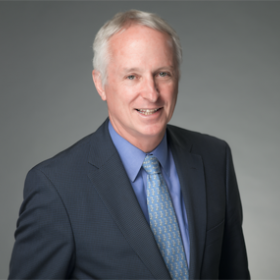
Cameron Munter on a Challenging World
Cameron Munter, EWI's new President and CEO, offers a unique perspective on most pressing security issues today.
This August, in the dog days of summer, discussions about global affairs invariably focus on the unprecedented challenges of our time. “This is the most dangerous time in decades” one hears; or, “the extent of problems in the world is unprecedented,” the “most challenging since the end of the Cold War.”
Perhaps. Conflict in Ukraine, uncertainty on the Chinese stock market, disputes in the South China Sea, the fate of the Iran nuclear deal, understanding ISIS and Al-Qaeda, Greece or migration as threats to Europe’s vision of itself … the list goes on and on. While these and other challenges may have overloaded the capacity of traditional government-to-government diplomacy or the capacity of foreign policy experts to come up with responses, we can still address current challenges in other ways as well.
This is why I’m so excited to lead the EastWest Institute at this particular time. We’re a small organization with an admirable track record for building trust, recasting issues so as to bring about understanding and creative solutions. Most of all, we are looking not only for new ideas but involving new participants as we seek solutions to seemingly intractable problems—the ones that have the experts so alarmed, but are, in a very real sense, opportunities to redefine conflicts that have (because of repeated efforts to climb the same hill by the same path) eluded solution.
EastWest brings together a broad set of constituencies for change. In China, for example, we promote party-to-party talks; we sponsor very senior military-to-military talks; we bring together businesspeople with a variety of backgrounds and talents. Who better to assess China’s economic decisions and their impact on the West? Who better to take a hard look at military capacities and choices and the risks they create? Who better to judge the changing nature of political power in China and how it fits (or irritates) American political leaders?
Yes, of course, we admire the efforts that the P5+1 and Iran have made in traditional diplomacy to address the role of Iran in a tense Middle East. We intend to follow up to encourage other players in the region to work not just on security issues, but find other areas of common interest that can contribute to sustained stability and open the prospect of true progress, not only with Iran but with its neighbors, from Turkey and Kurdistan to the Gulf countries and beyond.
Yes, of course, we admire the efforts to reach a settlement in post-2014 Afghanistan, and we aspire to augment any such successes with our initiative to reconnect Afghanistan to its neighbors, most notably India and Pakistan, with economic and business experts leading this effort. Yes, of course, we admire efforts by international institutions to prevent the collapse of the Euro, and we’ll help that effort with our ability to bring senior business leaders to the region to look at the fundamentals of investment and growth, not just in Greece, but also in the various regions of Europe hit hard by the prospect of Greece’s crisis.
I don’t mean to say these “dangerous times” have simple solutions. Rather, I believe the solutions to these and other challenges will, in the 21st century, not be found in the same way. The solutions may not be as conceptually coherent as we’ve convinced ourselves they were in the past, and there will be a lot more participants who don’t come from the ranks of traditional foreign policy experts. Non-state actors of all sorts will be involved, and consensus among them may be tough to find, and yet, this breadth and diversity of opinions will spur the creativity these times require.
With its history of building bridges, promoting patience, respect, and understanding, and above all approaching problems with novel solutions, the EastWest Institute welcomes the opportunities these difficult times present.

